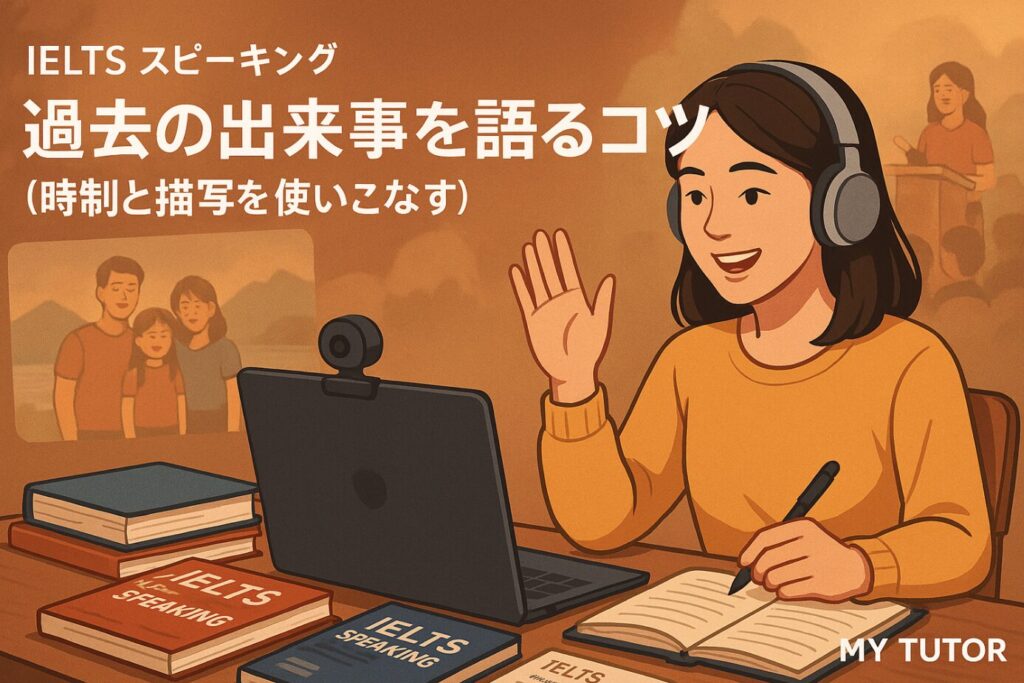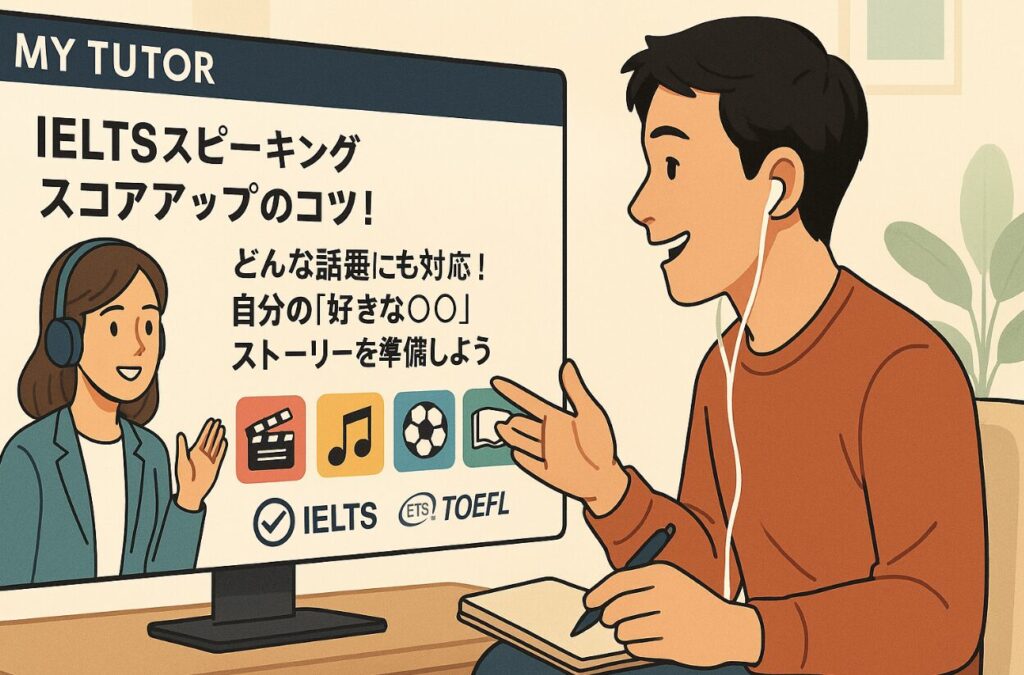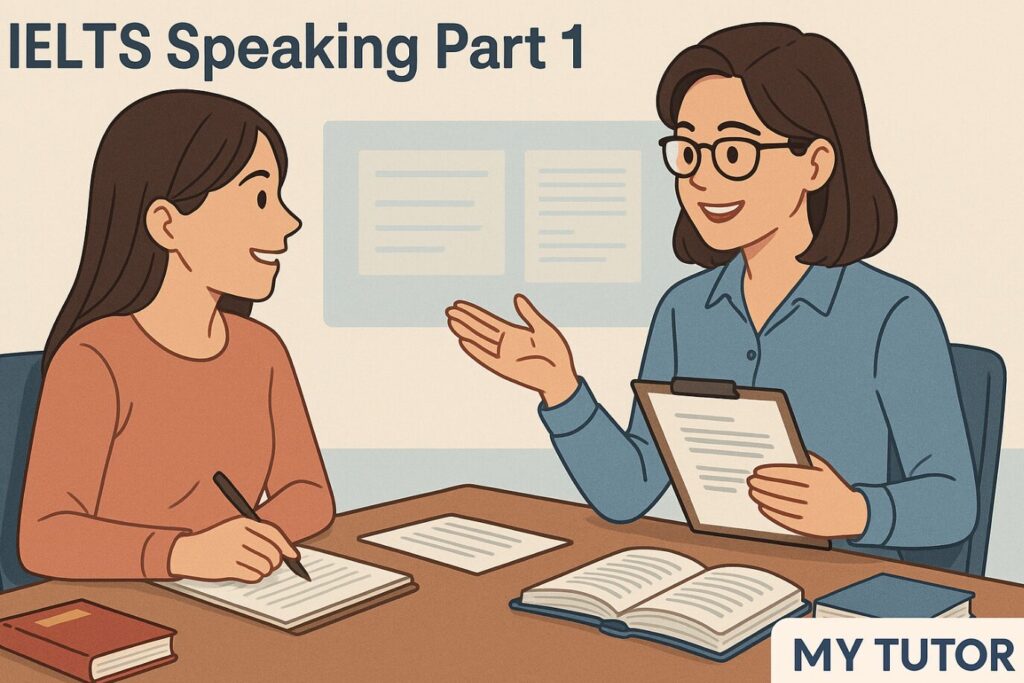
【Part 2 過去の出来事を語るコツ(時制と描写を使いこなす)】
IELTSスピーキングPart 2では、「過去の出来事」を語るトピックが頻出です。
例:Describe a time when you helped someone / Describe a memorable event from your childhood など。
このようなお題で高スコアを取るには、「時制」と「描写力(description)」を上手に使いこなすことが鍵です。
⏰ 1. 時制の使い分けがスコアの土台!
Part 2の過去のお題では、基本は過去形を使いますが、状況によって現在完了形や過去進行形を織り交ぜると、より自然で豊かな表現になります。
例:時制の組み合わせ
- 過去形:I visited Kyoto with my family two years ago.
- 過去進行形:We were walking through a quiet street when it suddenly started to rain.
- 現在完了形:I’ve never forgotten that day because it taught me an important lesson.
▶ ポイント:時制が混乱してしまうと減点対象になるので、過去→背景→結果の順で時制を使い分けましょう。
🎨 2. 描写力でストーリーを“生きた体験”にする!
IELTSは「話の内容そのもの」よりも、「どれだけ具体的に話せるか」が重要です。
視覚・聴覚・感情の描写を加えると、説得力が格段にアップします。
使える描写のコツ:
- 場所:It was a small café with warm lighting and the smell of fresh coffee.
- 感情:I felt really nervous at first, but then I started to enjoy the moment.
- 音・動き:Everyone was clapping and cheering loudly when I stepped on the stage.
🧠 3. 使えるテンプレート構成(過去のお題用)
- When and where(いつ・どこで)
- What happened(何が起こったか)
- How you felt(どう感じたか)
- Why it was memorable(なぜ印象に残っているか)
この構成に沿って1〜2分話す練習をすると、安心して本番にも対応できます。
✍️ 4. 1つの体験を複数のお題に応用しよう!
例えば「中学の発表会でスピーチをした体験」は以下のトピックに応用可能です:
- A time you felt nervous
- A memorable event
- A time you prepared something in advance
- A situation where you learned a lesson
▶ 同じ体験でも視点を変えるだけで別のお題に対応できる!
✅ まとめ
〇 時制を明確に使い分けることが第一歩(特に過去形+補助的に他の時制)
〇 視覚・感情・状況描写を入れて、ストーリーに深みを
〇 1つの体験を複数のお題に応用できるようストックしておく

















